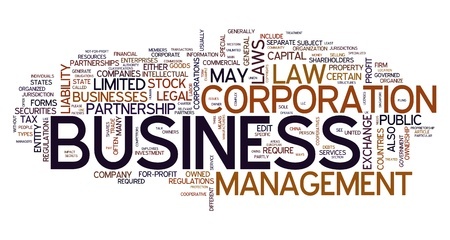I talk to a lot of entrepreneurs at every stage of the business life cycle and am getting better and better at spotting their business mistakes. I talk to beginner entrepreneurs and small business owners that are just getting started and aren't sure what to do next, I talk to CEO's of million dollar companies, and I talk to everyone in between.
Over the course of several years talking to new entrepreneurs and seeing first hand how their small businesses work, I'd like to think that I've learned a few things about what makes a business successful and what doesn't.
Today I want to share with you some of the lessons I've learned and observed in talking to hundreds of entrepreneurs who are interested in protecting their brands with trademarks. Specifically, I want to review 7 of the most common mistakes I see new businesses make when they are just starting out.
Let's get to it.
1. You Don't have a Solid Business or Marketing Plan
I'm not suggesting that you need to have a 50 page written thesis with pro forma financial statements and projections for the next 3-5 years… but hey, it wouldn't hurt. 😂
No, what I'm suggesting is that you should take a few minutes to really think about your business. Who is your ideal customer? What problem are you helping them to serve? Have you done any market research to project what kinds of sales you can expect? What are you going to sell to your potential customers? How much money do you need to make? Where are you going to find these customers? Do you have a marketing strategy?
At a minimum, you need to answer these questions if you want to reach business success. I speak with so many entrepreneurs and new business owners that have a “general idea” of what they want their business to be, but they don't have a clue how they will get customers. They spend a lot of time during their first year of business building a product, without first proving to themselves that someone will actually purchase it. They have lots of great new ideas, and some may even be good ideas, but they aren't sure which to pursue because they haven't tested these ideas.
Don't make that mistake. Think through your overall business model, who your target audience will be, and how you intend to generate revenue FIRST.
2. You are Undercapitalized
If you aren't sure how you are going to pay your mortgage/rent payment next month, or are struggling to buy food for your family, then you should probably think twice before you try to start a new business.
The bottom line is that with most new ventures, it can take anywhere from 6-12 months or longer just to start earning regular revenue – let alone becoming profitable. And most people do not have a year's worth of expenses saved in their bank account.
My recommendation is that you keep your day job and work on your “side hustle” after work and on the weekends. Once you start to generate cash flow from your own business, you can make rational decisions about what is best for your business as opposed to making business decisions based on fear of how you are going to pay the bills next month. In this way, you can step back and focus on building something truly amazing.
3. You Don't Recognize Your Own Limitations
I firmly believe that anyone can build a business as an entrepreneur. But you have to recognize your own limitations. Some people are naturals at entrepreneurship – everything they touch turns to gold and they are able to pump out good idea after good idea.
Other people struggle for years to figure out how to build a business that is profitable, if they are ever able to do this.
Entrepreneurship is hard. It takes a long time to build a successful business. It will cost you a lot of time and money.
If you have been working on your business for several years and still aren't generating any revenue, let alone profit, then you are doing something wrong. It could be you have a bad idea, you are targeting the wrong audience, or you just don't understand how to create something that others will pay for.
The good news is that the more you fail, the more you learn what doesn't work and can pivot to something that does work. But you must understand when to make that pivot, which isn't easy.
You must understand your limitations and whether entrepreneurship is the right choice for your personality. It takes a lot more than hard work to build a business. You have to have a great idea and take action on that idea.
4. You Waste Too Much Time on Things that Don't Move the Needle
A common small business mistake is to waste too much time on tasks that are unimportant and not likely to generate you revenue. Setting up an LLC and opening your business bank accounts is important, but it shouldn't take you a month to accomplish. It should take a couple of hours in a single afternoon and then you can move on.
If you are paralyzed by inaction, or find that you are wasting time on things that you know in your heart just don't matter (i.e. trying to decide what blog posts to write rather than actually publishing blog posts, or consuming social media rather than creating valuable content for others) then you might be guilty of this mistake.
When I first started my law practice, I wasted time and money on taking out ads, building my website, and making sure I had awesome looking stationary for my office. It wasn't until I started developing referral relationships that my law practice finally took off.
Once you know how you are going to obtain new customers and clients, then you have to go to work on the activities that will actually get you those customers and clients. Anything else is merely wasted time.
5. You Refuse or Ignore Professional Advice
The most successful entrepreneurs seek out and value professional advice. It could be tax professionals, financial advisors, or lawyers. Rather than trying to do everything on their own, they realize that spending a little money to consult with a professional could save them potentially thousands of dollars in the long run, not to mention hours upon hours of wasted time trying to research DIY solutions on their own.
On the other hand, many newbie entrepreneurs, in an effort to save money, will watch hours upon hours of Youtube videos, read countless blog posts, and ask questions in comments in an effort to get things done on their own. This is a big mistake.
Little do they know that not only are they wasting time that could better be spent building their business, but they are more likely to mess things up by tackling these complicated issues on their own rather than just paying someone for help.
Earlier this week I was talking to a potential client about trademarking their name. While we were on the strategy call, I did a quick knockout search for them and found a competing application that had been filed without the help of a lawyer. Recently this application received an 80-page preliminary denial that cited numerous issues and hurdles that the applicant would have to overcome to receive their registration. I have serious doubts about whether this person will ever get a registered trademark – all because they didn't seek legal help.
Similar stories can be found with people trying to manage their own investments and file their own taxes.
Don't make these mistakes. Seek out professional advice when appropriate and don't be afraid to pay for it. It will save you a lot of money and wasted time in the long run.
6. You Don't Validate Your Ideas
Another major mistake that entrepreneurs make is not validating their ideas before they spend months building their product. Whether you are building a course, creating a coaching program, or starting an e-commerce store with Shopify, you must validate your business idea first.
How do you validate your idea? Here are a few ways to do this:
- Ask people to buy your course before you actually create it.
- Offer 1×1 coaching services before you create a group coaching program.
- Does your product or service have lots of competitors? The more competitors you have, the greater the demand for what you do.
- Are people advertising on Google and/or Facebook for your product or service?
- If you are selling software, can you pre-sell your solution to your customers to generate cash that will fund development of your end product?
Only after you have validated your idea should you begin creating your product. Most entrepreneurs do this backwards. They build the product and then try to sell it only to find out that nobody wants to buy it.
Don't make that mistake.
7. You Don't Have a Path to Profitability
There are many reasons that people start businesses, but if I had to guess, the most common reason is to create an income producing asset to support you and your family. If that is your goal, then if your business is not making money you don't have a business, you have a hobby.
Before you do anything related to your business, you must know how you plan to make money from your business.
- Will you sell physical products?
- Are you going to create a blog and put advertising on it?
- Are you going to create a digital course?
- Will you be making videos on Youtube or Instagram in an effort to monetize those channels?
- Perhaps you want to grow an audience online and then partner with brands to promote various products?
It doesn't matter what option you choose. In fact, you may have more than one choice in mind. But when you are just getting started, it is important to start with one goal for how you are going to make your business profitable, and then build from there.
What is the Biggest Mistake Entrepreneurs Make?
Of all of these costly mistakes, which is the biggest? Honestly, any of them could be a business killer to a new entrepreneur. If you are constantly trying to avoid the hard work, and looking for the easy way to build a business or become an overnight success, then chances are you are doing it wrong. You can't be afraid to try and learn new things, hire the right people at the right time, and do what it takes to protect your intellectual property and other business assets.
If you do all of those things, then you are already on the right track and will avoid many of the small business mistakes that plague so many young entrepreneurs.


